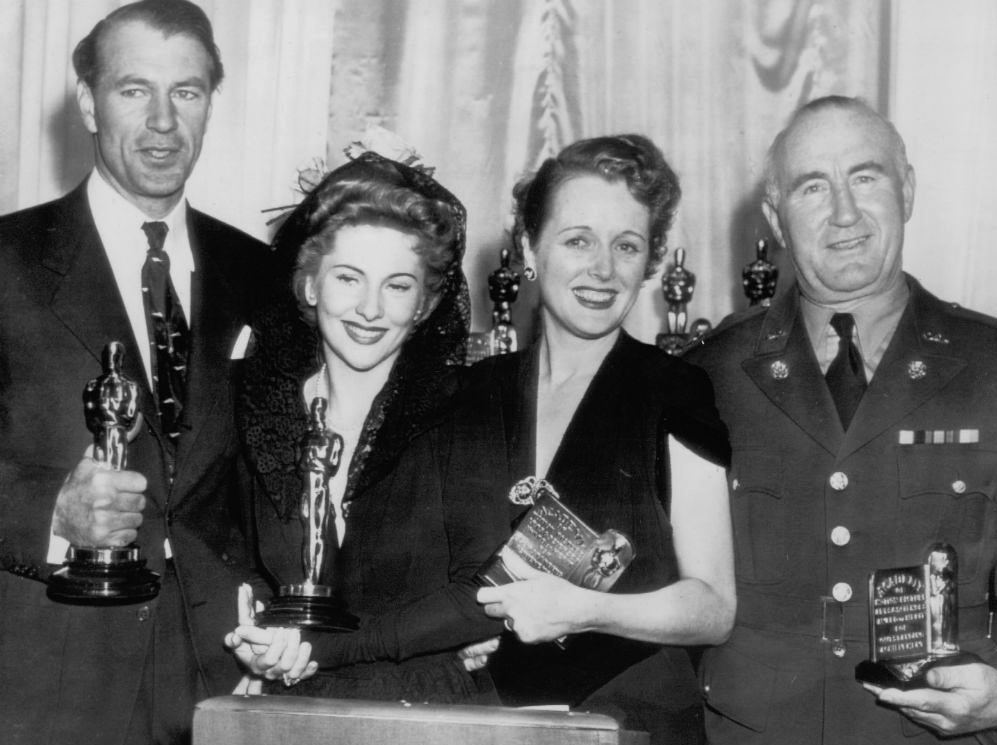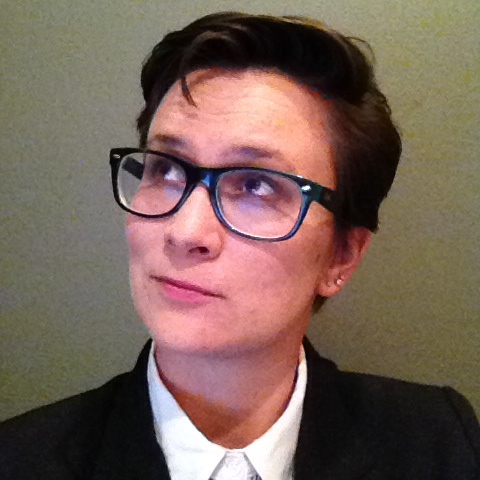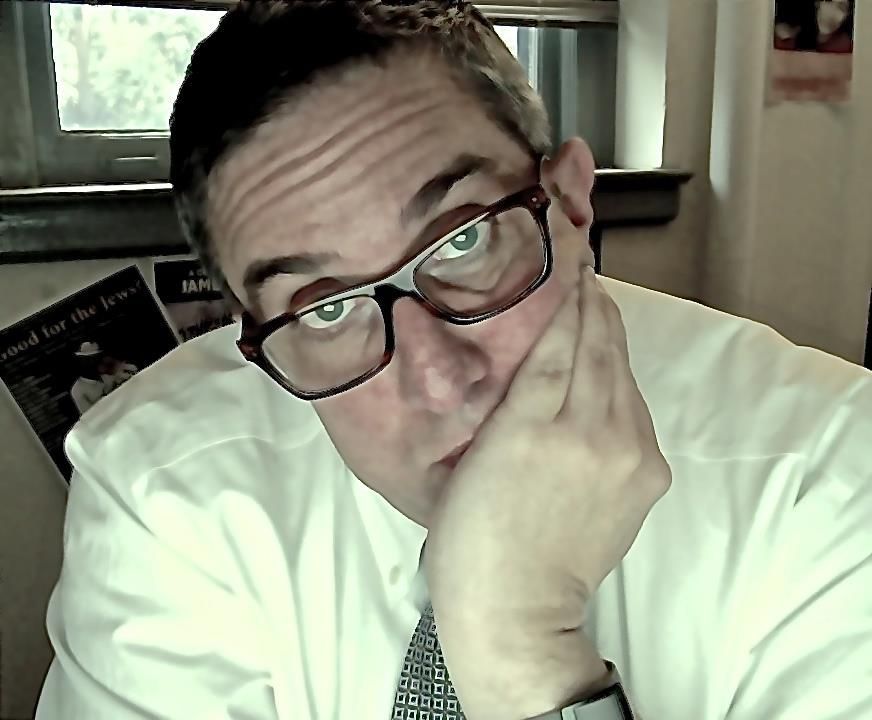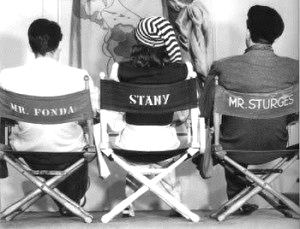The Supporting Actress Smackdown, 1941 Edition, hits these parts on Saturday May 31st (here's the full summer calendar). This month we'll be discussing Mary Astor in The Great Lie, Sara Allgood in How Green Was My Valley, Margaret Wycherly in Sergeant York, Teresa Wright and Patricia Collinge, both in The Little Foxes.
 1941 winners: Gary Cooper, Joan Fontaine, Mary Astor & Donald Crisp. Note how the supporting actors used to win a plaque instead of a statue!
1941 winners: Gary Cooper, Joan Fontaine, Mary Astor & Donald Crisp. Note how the supporting actors used to win a plaque instead of a statue!
It's time to introduce our panel as we dive into that film year next week with little goodies strewn about the usual postings.
Remember YOU are part of the panel. So get your votes in by e-mailing Nathaniel with 1941 in the subject line and giving these supporting actresses their heart rankings (1 for awful to 5 for brilliant). Please only vote on the performances you've seen. The votes are averaged so it doesn't hurt a performance to be underseen.
MEET OUR PANEL FOR MAY
 Angelica Jade Bastién
Angelica Jade Bastién
Angelica is a writer and southern dame living in Chicago prone to verbose discussions about 1940s women's pictures, Wonder Woman and beer. She is currently focusing on screenwriting including polishing her features Suicide Blonde and The Perversions of Quiet Girls.
[Follow her on Twitter / Tumblr]
What 1941 means to me...
I think of platinum blonde dames cast in shadows, copious cigarette smoke, and the contradictory nature of women's pictures. Three films usually come to mind when that year is mentioned: The Lady Eve, The Maltese Falcon, and one of the few Hitchcock films I outright love, Suspicion. All films rife with fascinating gender politics, sharp dialogue, and dynamite performances. But ultimately my mind goes back to Bette Davis (doesn't it always?), in The Little Foxes. While her previous collaborations with William Wyler seem to be more talked about, I've always found this cold hearted, gem of a film the one I revisit most often. Maybe it's the southern setting or maybe it is the extra-textual aspect of what was going on between Wyler and Davis or maybe it's Gregg Toland's moody cinematography. Or perhaps it all comes down to seeing such a dynamic female character clawing for power in ways I always yearn to see more of
 Anne Marie
Anne Marie
TFE's resident classic movie geek is the author of our weekly series "A Year With Kate," screening Katharine Hepburn's 52 films in chronological order. Anne Marie works in film preservation and posts non-Hepburn-related musings on her own blog "We Recycle Movies." [Follow her on Twitter.]
What 1941 means to me...
Citizen Kane. That's the answer I'm required to give by cinephile law, right? But 1941 is much more than one film, no matter that film's inflated place on AFI's Top 10. 1941 was the year of the last Garbo movie, the first cartoon naming Bugs Bunny, and film noir's "official" start. It's also the year of my favorite Barbara Stanwyck performance (The Lady Eve), my favorite Lana Turner performance (Ziegfeld Girl), and Bette Davis unequivocally greatest performance (The Little Foxes). Forget Charles Foster Kane. Regina Giddons rules 1941. 'I'm lucky, Horace. I've always been lucky. I'll be lucky again.' "
 Brian Herrera (aka StinkyLulu)
Brian Herrera (aka StinkyLulu)
Brian convened the first Supporting Actress Smackdown and hostessed more than thirty. He is a writer, teacher and scholar presently based in New Jersey, but forever rooted in New Mexico.
[Follow him on Twitter]
What 1941 means to me...
When I think of 1941 and the movies, I first think of the movie "1941". That legendary flop that, in retrospect, somehow cued that Stephen Spielberg was not just a popcorn-movie guy but also a filmmaker with big ideas about American history, American culture and the importance of Hollywood movies to the nation's understanding of itself. Looking at the supporting actresses of 1941, I'm beginning to think that 1941 might likewise be a year in which the Academy began to understand something similar about how the movies (and the Oscars) had the power to shape how America celebrated itself. And, not unlike Spielberg's 1941, Oscar's 1941 is sorta all over the place but, still, there seems to be something peculiarly prescient about this year's nominees...
 Nathaniel R
Nathaniel R
Nathaniel, the founder and chief contributor of The Film Experience is a member of the Broadcast Film Critics Association and a famous Oscar blogger since the dawn of man. He is also a crazy cat lady.
[Follow him on Twitter]
What 1941 means to me...
The canted angle. My first ever viewing of Citizen Kane was in my freshman year of college where the professor showed us Orson Welles classic and I learned, among other things, that Welles and his DP had pioneered the canted angle. (I thrilled to everything in the movie but later defected to The Magnificent Ambersons as my preferred Welles. ) I did not know then that I would come to groan at the canted angle which has long since become a parody of itself in the movies, signifying "Tension Goes Here!". But mostly 1941 makes me think of that 5 minute long close-up of Barbara Stanwyck seducing Henry Fonda in The Lady Eve and wishing all directors would have the nerve to continuous shot their nervy leading ladies that long. Let's run that into the ground until it's a parody of itself!
 Nick Davis
Nick Davis
Nick Davis the author of the film reviews and other sporadically posted material at www.NicksFlickPicks.com and a regular podcaster here at The Film Experience. He is also Associate Professor of English and Gender & Sexuality Studies at Northwestern University. His first book "The Desiring-Image" was released last year.
[Follow him on Twitter]
What 1941 means to me...
I know that when I hear 1941, I should right away think "Pearl Harbor," and on my better, more worldly days, I do. I could contemplate the finer points of the "four freedoms" that FDR described in a 1941 speech as inalienable rights of all global citizens: freedom of expression, freedom of worship, freedom from want, and freedom from fear. I recently learned I could think about Curious George and The Black Stallion, which made 1941 a banner year in children's book publishing, though I can't think of any major books for adults that debuted that year without looking them up. Okay, Mildred Pierce. Let's assume there were others. But let's be honest: I think most quickly of Citizen Kane, and of Barbara Stanwyck's thrilling hat-trick of The Lady Eve, Meet John Doe, and Ball of Fire, and of Joan Fontaine and Olivia de Havilland being nominated against each other, and of lesser-known movie favorites like The Flame of New Orleans with Marlene Dietrich and The Blood of Jesus by pioneering African American filmmaker Spencer Williams. I am who I am, and I am sorry for that..
That's it folks. The only thing missing is you. When you hear "1941" what do you think of? Well, besides The Lady Eve which is apparently our communal brain candy.

Are you excited for the Smackdown?
Previously on the Smackdown: pie throwing 1952, shady and sinister 1968, warm and kooky 1980, and troubled histrionic 2003